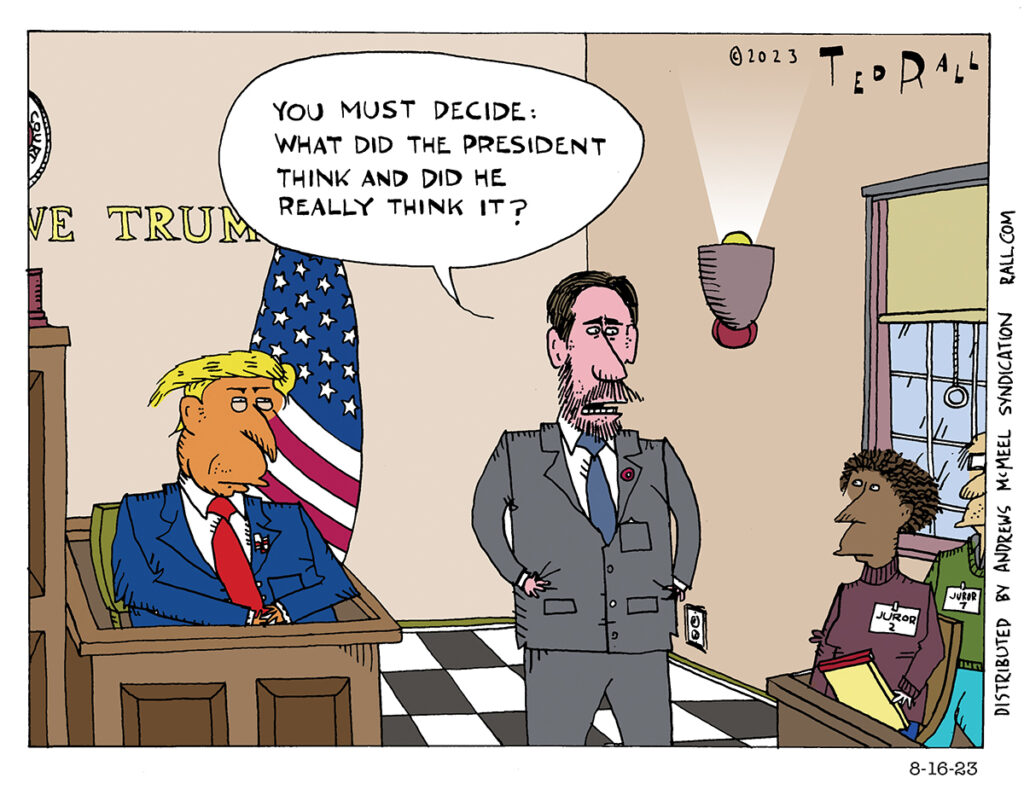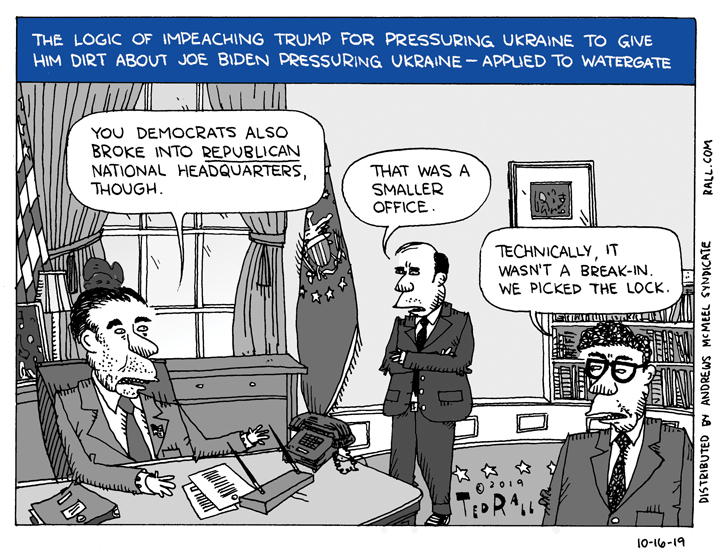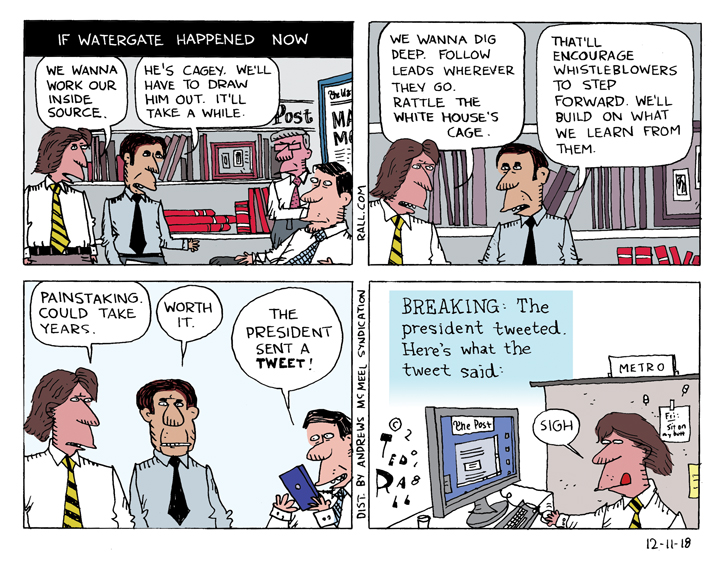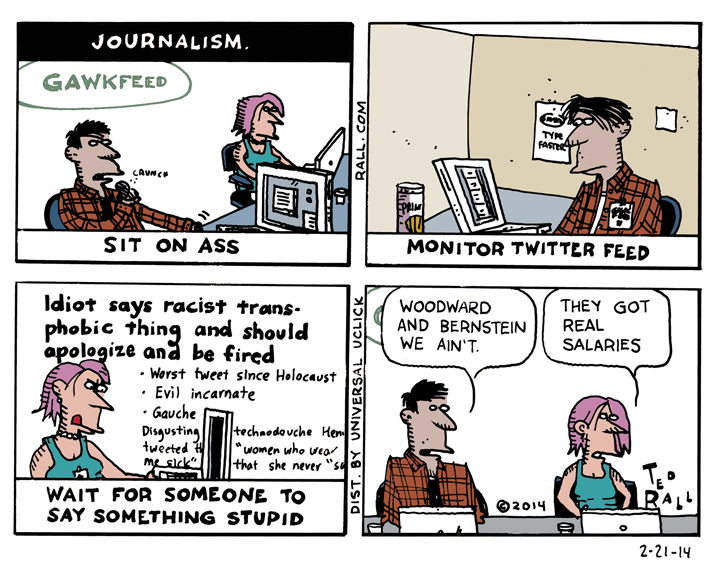During the Watergate scandal, a recurring question was asked: What did President [Nixon] know and when did he know it? Special Counsel Jack Smith’s January 6th-related charges against Donald Trump prompt a similar question, albeit one that is fundamentally unknowable. If he truly believed that Biden cheated him out of the 2020 election, his efforts to reverse the results were nothing of the sort, but merely his attempt to set things right.
May the Second-Best Person Win

Only God and Kevin McCarthy know how long George Santos, the disgraced Republican freshman congressman from Long Island whose antipathy for the truth stands out even by politician standards, will be able to remain in office. If and when he is forced to step down, say, after an explanation for his mysteriously improving financial status finally surfaces, I do know how his seat will be filled.
And it’s totally unfair.
There’ll be a special election. But Robert Zimmerman, the Democrat defeated by Santos in November, won’t even be guaranteed a second shot. Party bosses will pick the two candidates—of whom Zimmerman may or may not be one—like it’s 1880.
Zimmerman was cheated. The “George Santos” who beat Zimmerman wasn’t a real person or a real candidate. The voters didn’t have the information they needed to choose their congressman. They were bedazzled by a fraud, seduced by a chimera. At bare minimum, Zimmerman ought to be guaranteed the Democratic nomination in a special election.
But even that wouldn’t be fair to Zimmerman. Why should he have to campaign all over again?
Nor would it be fair to the taxpayers. Each special election costs millions of dollars. Each brings a fresh round of annoying attack ads. And each one requires thousands of voters to cast new ballots. For the sake of simplicity and common sense, let’s be done with it. We already have a winner: Robert Zimmerman.
Even after the first-place winner gets disqualified for cheating, second-place finishers in politics are doomed to also-ran status. The most famous example of this type of injustice was the outrage, well-known yet rarely reconsidered, vested upon Senator George McGovern.
There is no question that President Richard Nixon cheated in 1972. Nixon’s goons broke into Democratic National Headquarters to steal McGovern’s secret campaign strategies. They burglarized VP candidate Thomas Eagleton’s psychiatrist’s office and leaked his patient records, forcing McGovern to replace his running mate mid-campaign. McGovern might have lost to Nixon anyway. But he never stood a chance after the Eagleton affair.
Three years later, the country knew Nixon was a crook and a big one at that. The Watergate break-in triggered a series of revelations and scandals that forced Nixon to quit. Justice!
But not really. In most cases, when one contestant cheats his fellow contestant and wins, fairness requires the winner to be stripped of his ill-gotten victory and the person he screwed over to be given the prize instead. Not in politics. Nixon slunk off to rebuild his reputation as an elder statesman. What of McGovern? He got nothing. Dead now, McGovern is still ridiculed for losing to Nixon in a record landslide—a landslide Nixon stole.
To add insult to historical injury, Nixon was never held to account for Watergate. He was allowed to appoint his own successor, fellow Republican Gerald Ford, who then pardoned him and continued many of his policies. Following Nixon’s resignation, fairness would have required McGovern to receive the office he was cheated out of in 1972, for a full four-year term followed by the chance to run for reelection.
Constitutional succession should make an exception for political office holders impeached or forced to resign as the result of a scandal. If former New York Governor Andrew Cuomo had been forced to quit due to, say, poor health or had died in office, automatic constitutional succession by his lieutenant governor, Kathy Hochul, would have been proper. Instead, Cuomo quit after being accused of serial sexual harassment. Under these sordid circumstances, allowing his Democratic Party to retain Cuomo’s seat, and his chosen successor to run for “reelection” with the advantages of incumbency, failed to punish his sleazy behavior or his enabling party. Marc Molinaro, his 2018 Republican opponent and the second-largest receiver of votes, ought to have replaced Cuomo for four years.
The same error occurs in other professions.
Milli Vanilli lost its 1990 Best New Artist award for lip syncing. The Grammys never bothered to make it up to any of the runner-ups (Neneh Cherry, Indigo Girls, Tone Lōc and Soul II Soul), all of whom were objectively more talented and important than the shamed winner.
There are no official Tour de France winners listed for the seven consecutive years between 1999 and 2005 when Lance Armstrong won. Armstrong, of course, was subsequently stripped of his title due to doping. The Spanish cyclist Joseba Beloki, the only runner-up during Armstrong’s run not to have been found guilty of using performance-enhancing drugs, deserved to be awarded the yellow jersey he was denied in 2002. Instead, Beloki is wrongly consigned to obscurity.
It is as though once a runner-up, always a runner-up. However, the fact that the person who “beat” you did it by breaking the rules is not—or should not be—a mere footnote.
If a gold medalist breaks the rules, the silver medalist receives the gold they were cheated out of. That’s how it works in the Olympics, and that’s how it should work in politics and everywhere else.
(Ted Rall (Twitter: @tedrall), the political cartoonist, columnist and graphic novelist, co-hosts the left-vs-right DMZ America podcast with fellow cartoonist Scott Stantis. You can support Ted’s hard-hitting political cartoons and columns and see his work first by sponsoring his work on Patreon.)
The Logic of Impeaching Trump as Applied to Watergate
The most recent impeachment hearings had a clear narrative. One person did something wrong, the president. The other party did not. In Watergate, the Republicans were guilty of dirty tricks including breaking into Democratic national headquarters. With Bill Clinton, he was the one who lied under oath and had sex in the oval office. The current impeachment inquiry into Donald Trump being led by the Democratic House of representatives doesn’t have any such clear narrative.
SYNDICATED COLUMN: Barack Obama Isn’t Half the Man of Richard Nixon

Forty years ago, President Richard M. Nixon announced that he would resign effective the next day.
At the time, aside from a tiny minority of dead-enders and a few desultory Congressional Republicans, an exhausted nation had arrived at a consensus that Nixon had to go. Politics had become too toxic, distrust of government too profound, and – most of all – the seriousness of the president’s crimes couldn’t be ignored. Judicial sanction wasn’t in Nixon’s future — Jerry Ford’s controversial pardon ensured that — but the ultimate political punishment, impeachment, seemed like the absolute minimum sanction in order to send the message that no man, no matter how powerful, was above the law. Nixon’s resignation, Ford assured Americans and the media agreed, proved that the system works.
Looking back now at what felt like a national cataclysm, however, we probably ought to dig up Tricky Dicky’s bones and beg him to accept our big fat apology.
Students of the Watergate scandal that led to that surreal day in August 1974 — the third day, expunged from history for fear of a repeat performance, when great crowds surrounded the White House, demanding that Nixon depart— will recall that it wasn’t the botched 1972 break-in at Democratic national headquarters that did Nixon in, but the cover-up.
By today’s standards, however, Nixon’s efforts to protect his henchmen, including his screwing around with the FBI investigation that led to an article of impeachment for obstruction of justice, look positively penny-ante, more worthy of a traffic ticket than a high crime or misdemeanor. Obstruction of justice, scandalous and impeachable just 40 years ago, has become routine.
Case study: Obama’s cover-up of torture.
Much bigger crime.
Much longer cover-up.
Much less of a problem.
Five and a half years after taking office, President Obama finally admitted what informed citizens have known since 2002: the United States tortures.
Obama has been covering up Bush-era torture throughout his tenure. (Not the act of torture by Americans, which has been widely reported and has inspired best-selling books and hit movies, but the governmental admission that attracts widespread attention and eventually creates pressure for action.) And even now, after finally admitting that the U.S. ranks with Myanmar and North Korea when it comes to this most basic of human rights, Obama refuses to authorize a formal investigation and prosecution of America’s torturers.
Bush’s torturers shouldn’t be hard to find: many of them are still working for the U.S. government, either force-feeding hunger-striking POWs at Gitmo or working for one of the branches specially exempted from Obama’s “no torture” order.
“When we engaged in some of these enhanced interrogation techniques, techniques that I believe – and I think any fair-minded person would believe – were torture, we crossed the line,” Obama told a press conference last week.
Better late than never. But not much better. Because, like so much of Obama’s rhetoric, they’re empty words.
Normally, when one crosses a line – is there a more clearly disgusting line than torture? – one faces consequences. Thanks to Obama, however, no one from the CIA, US military or other American government employee has ever suffered so much as a 1% pay cut as the result of drowning detainees, many of whom were released because they never committed any crime whatsoever, sodomizing kidnap victims with flashlights and other objects, subjecting people to extremes of heat, cold and sleep deprivation – not even for murdering detainees or driving them to suicide at American-run torture centers like Guantánamo concentration camp.
Though Obama had repeatedly promised throughout the 2008 presidential campaign that he would investigate war crimes under the George W. Bush administration and prosecute anyone found to have committed torture, soon after moving into the White House in 2009 Obama backtracked and infamously said that it was time to “look forward as opposed to looking backwards” – in other words, there would never be a serious investigation.
That promise, he kept.
“At the CIA,” Obama said in 2009, “you’ve got extraordinarily talented people who are working very hard to keep Americans safe. I don’t want them to suddenly feel like they’ve got spend their all their time looking over their shoulders.”
The president didn’t explain why causing concern to torturers would be bad.
Lest there be any doubt about his intentions to kowtow to the national security police state, Obama even traveled to CIA headquarters at Langley, Virginia to reassure nervous torturers that they would have nothing to fear from him. In 2011, Obama’s Justice Department officially exonerated “anyone who acted in good faith and within the scope of the legal guidance given by the Office of Legal Counsel regarding the interrogation of detainees” — i.e., pretty much every U.S. government torturer.
Even now, while Obama is supposedly admitting that torture happened, he uses hokey countrified verbal constructions to diminish the horror while making excuses for those who committed them: “I understand why it happened. I think it’s important, when we look back, to recall how afraid people were when the Twin Towers fell,” Obama said, as though there had been a universal demand for indiscriminate torture against teenage goatherds from Afghanistan in the wake of 9/11. “It’s important for us not to feel too sanctimonious in retrospect about the tough job those folks had.”
The torturers, you see, were the victims.
Incredibly, Obama added the following nugget to last week’s some-folks-tortured-some-folks statement: “The character of our country has to be measured in part, not by what we do when things are easy, but what we do when things are hard.”
Richard Nixon covered up political dirty tricks and got impeached for it; Barack Obama is covering up torture and continues to authorize it with impunity.
It hardly seems fair. But when we measure Nixon’s character against that of Obama’s, we’ll take note of the one who finally did the right thing and resigned.
(Ted Rall, syndicated writer and cartoonist, is the author of “After We Kill You, We Will Welcome You Back As Honored Guests: Unembedded in Afghanistan,” out Sept. 2. Subscribe to Ted Rall at Beacon.)
COPYRIGHT 2014 TED RALL, DISTRIBUTED BY CREATORS.COM
The New Journalism
Not long ago, journalists were expected to work stories by getting out of the office and tracking them down. The new breed of online journalists who have replaced them sit on their butts, monitoring tweets in the hope that some celebrity or politician will say something stupid so they can trash them. This is what, in an age of minute budgets, passes for journalism.
SYNDICATED COLUMN: Executive Privilege: Another Presidential Lie
Why George III Would Be Jealous of Obama
The Phoenix bureau of the Bureau of Alcohol, Tobacco, Firearms and Explosives sold over 2,000 guns to operatives they believed to be working for Mexican drug cartels between 2006 and 2010. According to the ATF, “Operation Fast and Furious” was an attempt to track the weapons to higher level criminals.
Things went south—literally—when ATF guns began turning up at crime scenes, including the murder of a U.S. Border Patrol agent. Now, as part of its investigation, the GOP-led House Oversight and Government Reform Committee is demanding that the Obama Administration turn over documents relevant to the botched ATF operation.
President Obama has refused, invoking “executive privilege.”
I put “executive privilege” in quotes because, like terms such as “enemy combatant,” it does not appear in law. Presidents of both parties—indeed, presidents of parties that no longer exist, all the way back to 1796—have asserted that the constitutional separation of powers grants the executive branch an “inherent” right to ignore subpoenas issued by Congress or the judiciary.
The standard argument is that compliance would reveal the internal deliberations of the President, his Cabinet officers and other government officials who require the presumption of privacy in order to engage in internal debates and deliberations.
This is Obama’s first use of “executive privilege,” but both by historical and current legal standards it is radically overreaching. The closest we have to a definitive word on executive privilege dates to the Watergate scandal, when the U.S. Supreme Court ruled against Richard Nixon’s attempt to stonewall Congress. As long as a prosecutor could argue that the relevant documents were essential to the justice of a case, and did not compromise national security, Chief Justice Warren Burger said, the president would have to fork over the documents.
Operation Fast and Furious, a law enforcement matter, doesn’t qualify under the Burger ruling. It’s hard to imagine making a credible case that national security would be compromised if the details were made public. Since run-of-the-mill ATF memos would be covered, the usual top-level internal deliberations justification doesn’t apply either: “Obama’s claim broadly covers administration documents about the program called Operation Fast and Furious, not just those prepared for the president,” reports Larry Margasak of the Associated Press.
Once again Obama is following precedent established by George W. Bush, whose legal advisors seem to have missed the class about how Americans decided not to be ruled by a King. Bush, who promoted another legal fiction, a “unitary executive” branch, invoked “executive privilege” six times, such as when refusing to release the minutes of Dick Cheney’s meetings with corporate energy executives, Karl Rove’s refusal to testify in the politically-orchestrated firings of federal prosecutors, and in the cover-up of the “friendly fire” shooting of former football player Pat Tillman in Afghanistan.
We’ve come a long way since 1796. Because the Constitution grants the Senate (but not the House) the right to ratify treaties, George Washington refused to turn over notes about the negotiations of the Jay Treaty with Great Britain to the House, claiming “executive privilege.” But he did give them to the Senate. And the Supreme Court overruled Thomas Jefferson’s 1807 claim that providing his private correspondence to Aaron Burr’s defense in his treason trial would imperil national security.
In case after case, the whole idea of executive privilege has been made up, used by both parties to protect secrets and cover up malfeasance, yet has little to no constitutional basis. But it’s hardly the only example of how the Constitution is routinely ignored. The most glaring, of course, is the way presidents have stolen the exclusive right to declare war from one wimpy Congress after another. By some measures the U.S. has fought hundreds of wars, yet only five have carried the legal standing of an official Congressional declaration of war.
Americans enjoy the presumption of innocence and the right to a fair and speedy trial, by a jury of their peers, under the Sixth and Seventh Amendments. Yet President Obama—building on a secret assassination program against so-called “terrorists” begun under Bush—asserts the right not only to deprive U.S. citizens of these rights, detaining them indefinitely and denying them a trial, but to assassinate them. According to The Washington Post, all they need to subvert more than two centuries of constitutional law is an internal memo: “The Justice Department wrote a secret memorandum authorizing the lethal targeting of Anwar al-Aulaqi, the American-born radical cleric who was killed by a U.S. drone strike [on September 30, 2011], according to administration officials,” reported The Post. “The document was produced following a review of the legal issues raised by striking a U.S. citizen and involved senior lawyers from across the administration. There was no dissent about the legality of killing Aulaqi, the officials said.”
We’re not even allowed to look at the text of the secret memo.
“Executive privilege.”
Too bad the Tea Party’s Constitutional purism is so inconsistent, focusing more on fighting the Democrats than protecting our freedoms. With no one to push back, we’re no longer a democracy. We’re Might Makes Right, not a nation of laws.
What’s worse, most Americans don’t care.
The United States is un-American.
(Ted Rall’s new book is “The Book of Obama: How We Went From Hope and Change to the Age of Revolt.” His website is tedrall.com. This column originally appeared at MSNBC.com)
(C) 2012 TED RALL, ALL RIGHTS RESERVED.




